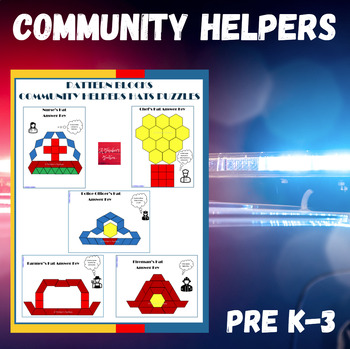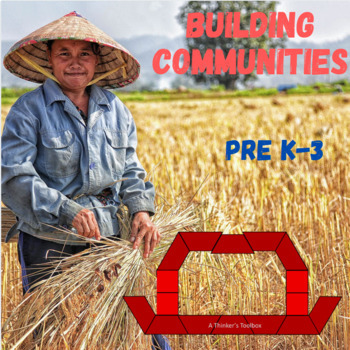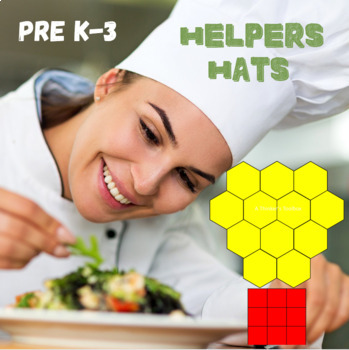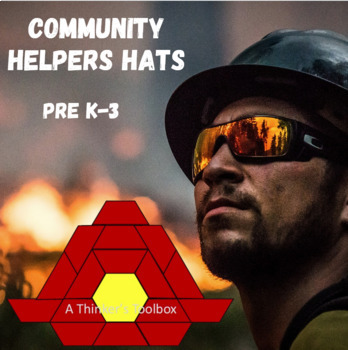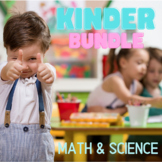Community Helpers Hats Pattern Block Mat Printables & Worksheet
- PDF
Also included in
- Incorporate fine motor, math, science, and writing with these engaging Pattern Block Puzzles and Worksheets for Kindergartners. *ALL of these puzzles are to scale and will fit on 8.5 by 11 sized printer paper/mats.Included in this bundle are:Patriotic PuzzlesCommunity Helpers Hats PuzzlesArctic AnimPrice $32.00Original Price $40.00Save $8.00
Description
These Community Helpers Hats Pattern Block Puzzles and Worksheets are designed to engage students in math, community exploration, and writing while having fun.
Here's a detailed breakdown of what you can expect:
Puzzles:
- Easy Puzzles: Ideal for Pre-K and Kindergarten students, these puzzles provide clear instructions on which pattern blocks to use. This introductory level helps young learners grasp the concept of shapes and spatial relationships while sparking students' curiosity about these roles in their community.
- Hard Puzzles: Geared towards 1st, 2nd, and 3rd graders, the challenging puzzles present only the puzzles' outlines. This level encourages students to apply critical thinking and problem-solving skills as they figure out which pattern blocks to use, enhancing their spatial awareness and geometry knowledge.
- Answer Keys(Watermarked): For students who may need additional guidance, the answer keys provide solutions to the puzzles. These keys are an excellent resource for teachers and parents to assist students in the learning process.
Supplemental Worksheets: Each puzzle comes with a corresponding worksheet. These worksheets serve as a comprehensive tool to further engage students in learning and practice:
- Tracing Puzzle Name: Students can practice their handwriting skills by tracing the names of the featured puzzle, improving their fine motor skills.
- Counting Pattern Blocks: This activity helps students enhance their counting abilities by tallying the number of pattern blocks used to complete each puzzle. It promotes basic math skills and encourages attention to detail.
- Comparing Shapes: These worksheets encourage students to compare the number of shapes used for each puzzle, fostering basic math concepts like comparing, more/less, and geometry.
Pattern Block Pieces: You'll find both black-line and colored pattern block pieces included, providing flexibility in how students can engage with the puzzles.
Watermarked Answer Keys: The answer keys include watermarks to protect this work from copyright infringement, ensuring the continued availability of these valuable educational resources.
This resource combines math, community exploration, and writing, making it a versatile tool for educators. It allows students to develop various skills while learning about the important roles of community helpers.
*Print on 8.5 by 11-sized paper or mats.
*Optional: Laminating the materials ensures durability for extended use.
☆STOP Hand Signs Classroom Management
☆Pattern Blocks Fire Safety Puzzles
Pattern Blocks Community Helper’s Hats Puzzles and Worksheets by A Thinker’s Toolbox is licensed and can not be disseminated without my express permission.
♡Follow Me♡

